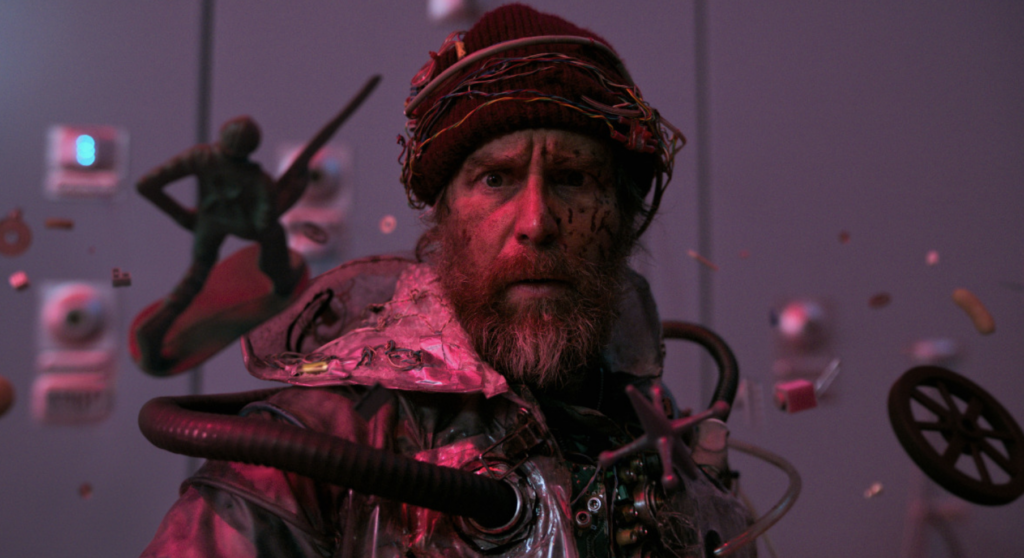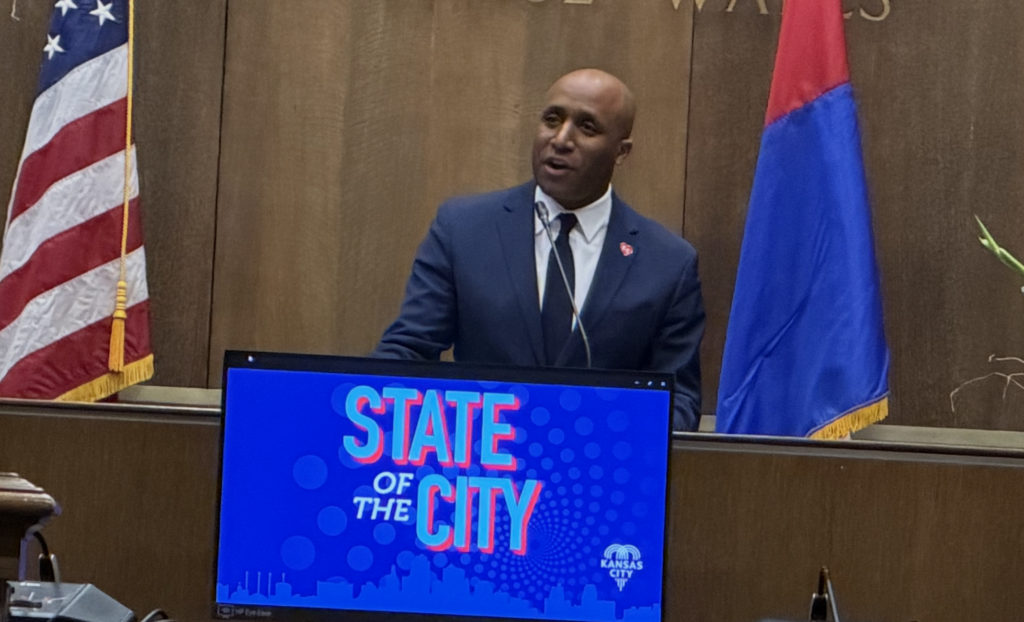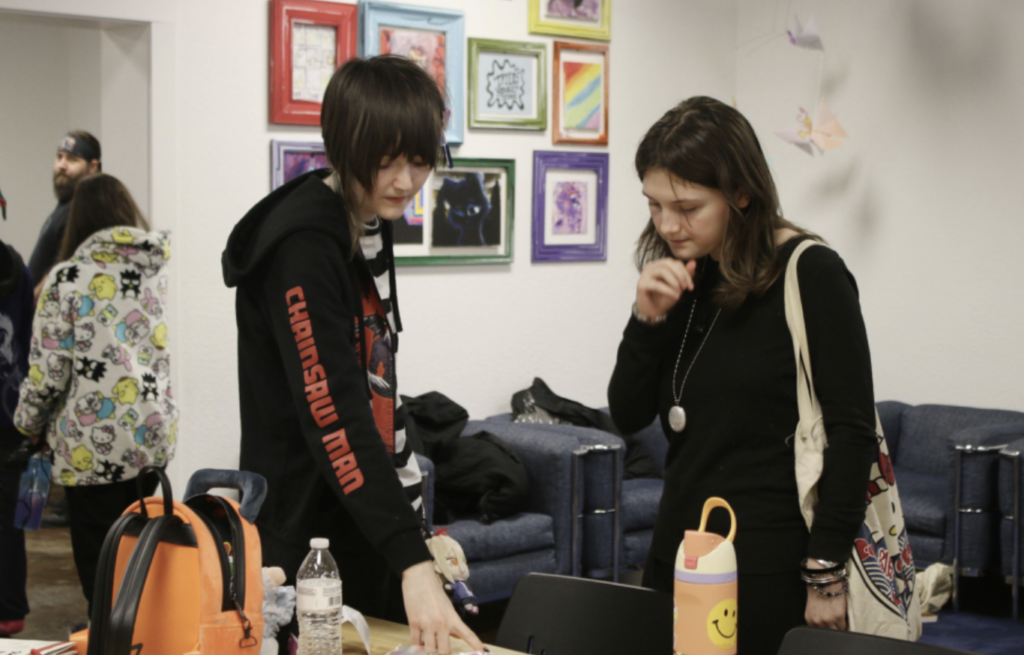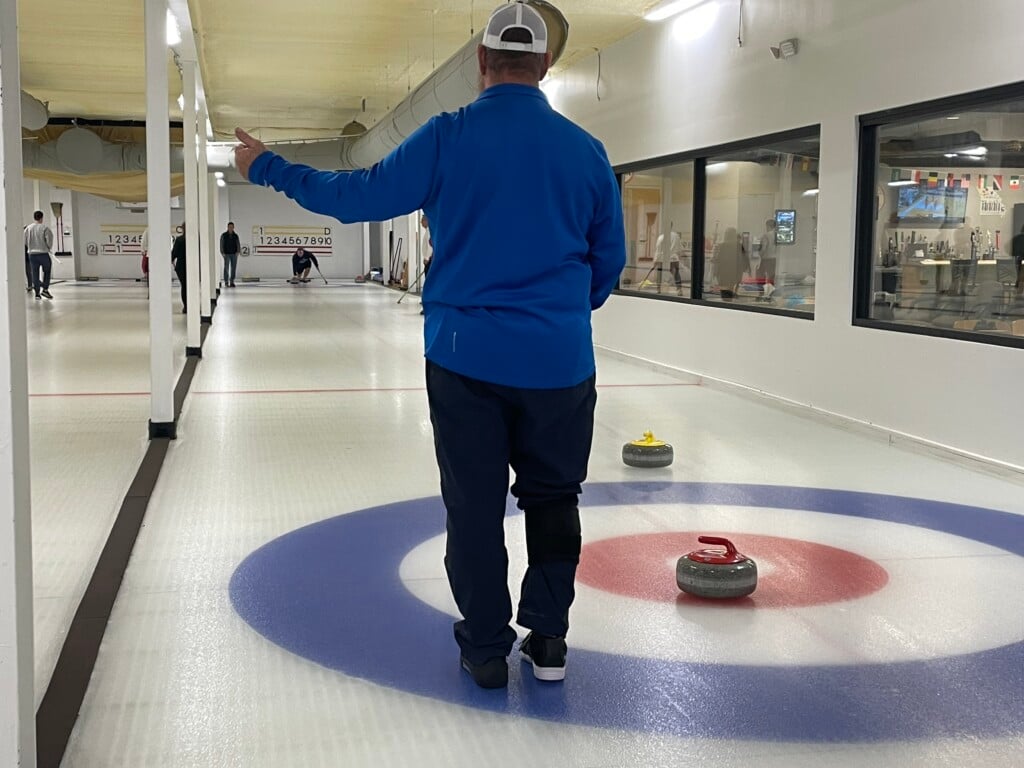A lovely chat with Nick Offerman, who brings his freewheeling comedy show “All Rise” to the Music Hall on Friday
Nick Offerman is still best known as Ron Swanson, the walrus-mustachioed libertarian of Parks and Recreation, but the figure he increasingly seems to cut is that of a modern renaissance man. Offerman runs his own wood shop in Los Angeles. He’s written four books, including one with his wife, the actress Megan Mullally. He hosted a reality show, Making It with Amy Poehler. He starred in the 2018 indie flick Heart Beats Loud, about a single father starting a band with his teenage daughter—an endeavor that also showcased his musical chops.
And then there’s the reason Offerman will be at the Music Hall in Kansas City on September 27: as a traveling humorist spreading his own brand of darkly funny homespun Midwestern wisdom, a sort of modern Mark Twain. We recently called up Offerman for a chat.
The Pitch: Thank you so much for your time.
Offerman: No problem. I’m crazy about Kansas City. I’ve played there a couple times. I mainly have enjoyed a deep dive into the barbecue feud that continues to rage, and also the amazing, independent bookstore—what is it? Rainy Day Books. When a city is so charismatically placed, and has such great architecture, and then has a kickass independent bookstore, and has barbecue like that—it sticks in your mind. I just think of it so fondly. Also, I’m excited—I’ve done a lot of reading about the Negro Leagues Baseball Museum, and I can’t wait to check it out. My friend Joe Posnanski wrote a great book about Buck O’Neill, which is where I learned about it.
Well, then—on behalf of KC, thanks for saying such nice things about our city.
I grew up in Illinois, and we’re just all prairie folk. When I play the Pacific Northwest or New England, I feel like I’m bringing my Midwestern mores and love of dairy products to another land. Like: Ah, you are the land of the lobster pot or the redwood forest—let me tell you about the tall grasses from which I sprung. Kansas knows about soil, so I enjoy clasping hands in a bucolic fashion.
What is the difference between a comedian and a humorist?
Well, it might interest you to know that I have broken down and begun to allow myself to be called a comedian. To my way of thinking, a humorist doesn’t have to be as funny as a comedian. My favorite examples of humorists would be Garrison Keillor, or of course Mark Twain. George Saunders is a wonderful modern humorist. Their material can be very funny, but it’s not the material of a comedian, which I feel is more a barrage of jokes. A comedian’s sole purpose is to make an audience laugh, and I think a humorist wants to make an audience think while they are laughing.
Honestly, when I started doing this seven or eight years ago, I just thought it was funny to call myself a humorist, and I was also giving myself permission to not be hilarious every minute. I was giving myself permission to pontificate a little bit. But after two tours, namely American Ham and Full Bush [laughs], it dawned on me that maybe the audience didn’t require my pontification as much as they relished my hijinks. So, I’m really excited about this new show, because I think I do a lot less flapping of my gums, and I’ve put a lot more effort into the funny side of things. It’s not to say that my first two shows weren’t ripping good times in the theater, but those were my freshman and sophomore efforts, and now that I’m taking a swing at a varsity-quality performance, it just occurred to me to try to get my points across while making everybody laugh as much as possible.
Can you describe the format of your live show?
I’m very old-fashioned. My favorite joke delivery system is with an acoustic guitar, singing funny songs I’ve written. I have seven songs, and they vary in theme, generally making fun of us for where our society has gotten to and the incredible ire that everyone seems to be displaying these days. Everyone is shaking their fists at someone else. And if you just take a small step back from the fray, it’s easy to realize: This is all just us. We live in the country with the benefit of a government that we vote for, and we’ve allowed ourselves through human nature and sheep-like consumerism to fall into the morass where we now reside, and everyone says “Hey, this sucks! Which nation of people voted for this?” It’s making fun of the aspects of human nature that got us to where we are.
There’s also a rousing paean to Brett Kavanaugh titled “I Like Beer.” I then like to close by tugging the heartstrings a little bit. On this show it’s called “Us Dipshits Gotta Stick Together.” That’s been a saying of mine for many years, especially in Hollywood settings, when people mistakenly try to give me the J-Lo treatment. I don’t need any fancy waters, derived from coconuts or otherwise. I’m with you—we’re all making this art project together. Invariably, people will say “Oh my god, I can’t believe you’re a normal human being. That’s crazy.” And I say, ‘It’s not crazy, us dipshits gotta stick together.”
We learned in Heart Beats Loud that you really have some musical talent. What is your musical background?
My parents put me through piano lessons for as long as I could stand it, and like so many, I regret that I did not stick with it, because I have no doubt that I’d be today’s Elton John if I had just stuck to tinkling the ivories. That was where I learned to read music and fell in love with the ability to perform. Then, from fifth grade through senior year of high school, I played the saxophone, and that was probably my musical peak. I became quite proficient on the tenor sax, and I was the lead sax in our jazz band. I also played some drums because I went to a small high school and there were only three of us who could actually carry the drums in the marching band. I dabbled in other stuff.
I’m not great at music. No one has ever asked me to play guitar or sing for them on my own merits. So once I discovered that I could get people laughing [with music], then they tended not to notice my lack of musicianship. I just love funny songs. The one that was very formative when I was a kid was Steve Martin’s album with King Tut. I came alive. It’s basically the building blocks of the phenomenon we came to know as Tenacious D, which is also deeply hilarious. Across my life in different settings, when people would play songs in the style of John Denver or Neil Young, with custom funny lyrics—it is the greatest, most delicious experience.
My husband and I both loved Making It, and we were so happy to see that it’s coming back. What surprised you most about making that show?
I’m thrilled with the positive audience response to that show. I’m just thrilled to be part of an effort to encourage people with love and positivity to make things with their hands. Those are two simple things that I think will go a long way to help us face some of the things we face as a nation. We rely on the convenience and luxury of surrounding ourselves with objects and services that can be acquired at the touch of a button. That gives away your agency, and means you don’t have any control over things like where your food is coming from and who’s making your tennis shoes, what country are they in, are there child labor relations. Corporate forces have taken over the world, and we’re waking up to that.
I think Making It is a staunch rebuttal to all this. The most surprising part about working on this show, for me, is the audience reaction. I have the good fortune of people coming up to me in public and telling me that they love Parks and Recreation, but since the advent of Making It, I have people coming up to me in the airport or grocery store and saying “Hey, I love Making It, especially because my kids or grandkids watch it with me, and we immediately start making stuff right when the show is over.” It’s all I can do to keep from sobbing right there in the grocery store.
And it is just such a kind and sweet show.
That goes back to Amy, and her charismatic troupe of powerful lady producers. They conceived the show, and Amy said, “I want to do a reality show, but I don’t want to be mean to anybody ever. I don’t want to capitalize on people’s failure. We can have enough drama and emotion and story without tricking people into failure.”
Can you talk about Would Works, and some of the people you have met through the organization?
Would Works is a program in Los Angeles that a couple of very smart people started, and my wood shop has become affiliated with. It’s called that because the idea is people would work if they could. It’s a program that allows people to perform simple labor on woodworking gift items—cutting boards, coasters, stuff like that. People can sign up and work a number of hours to earn items of credit for something they need in order to get their lives back under their control. So many people are the victims of some unfortunate circumstance. Homeless people aren’t just losers who have given up on life. A great percentage of them are just people who have met with misfortune, either through the opioid epidemic or because of the healthcare system in this country. People are losing their homes and their lives and families because of our terrible health care, which is insane. The important thing that happens is that they come in and work for two weeks or a month, and then afterwards they have a reference that a prospective landlord or employer can call. We can say, “Judy worked here for a month, and she was always on time, and she’s sober,” or whatever it is. The majority of people want to work. It was a no-brainer that my wood shop became aligned with them. I’m on the board of directors, and we’re very invested in helping the program grow, and I would love to see similar programs appear across the country.
Nick Offerman.
Friday, September 27, at the Music Hall Kansas City, 301 W. 13th Street.





